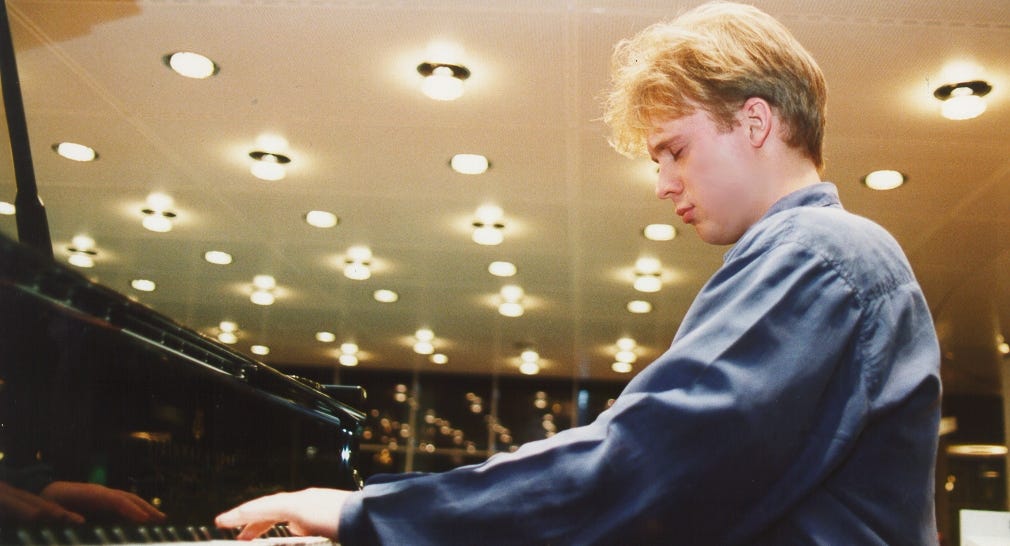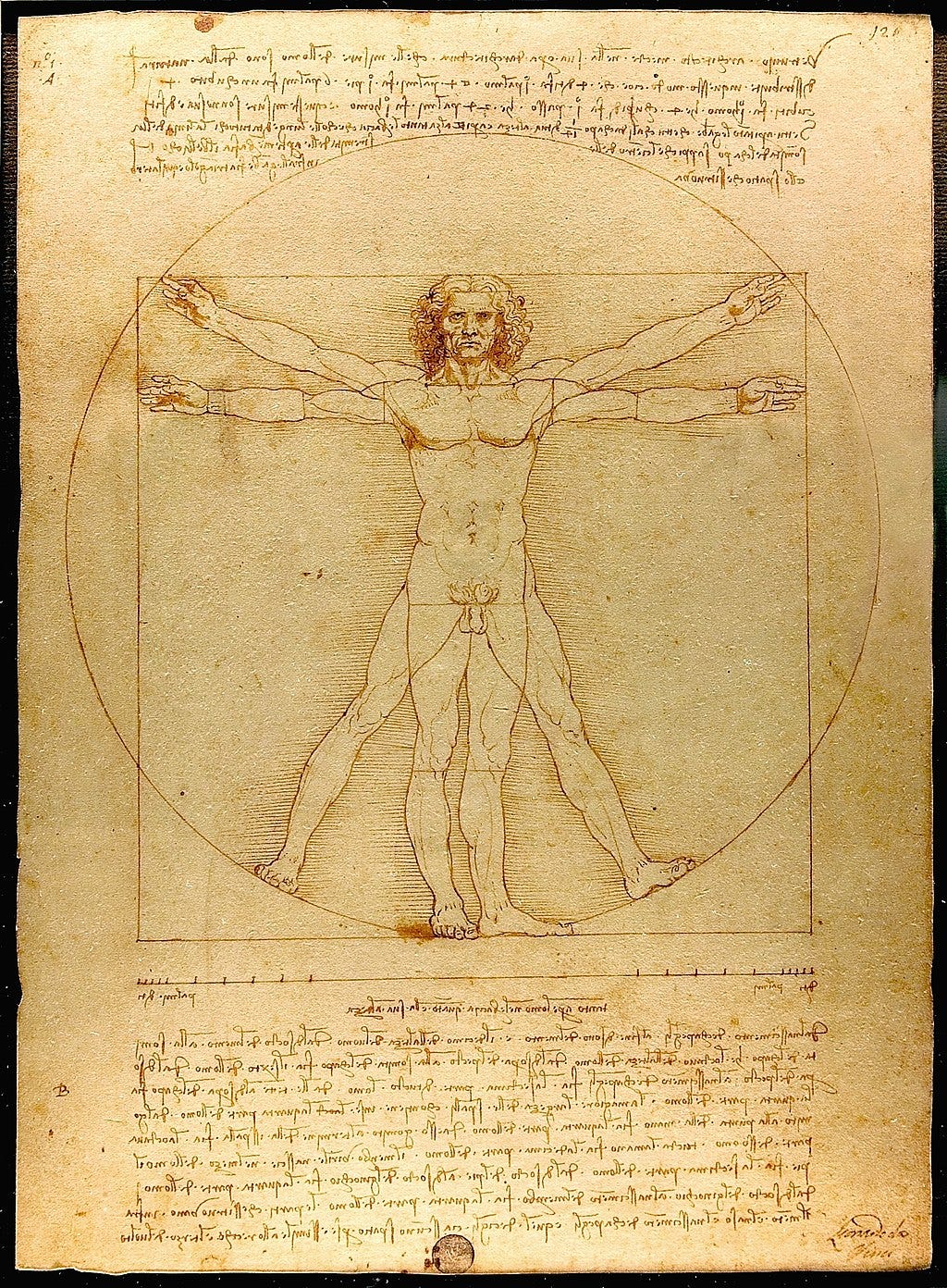“Who am I” — a question some ask all the time, a few once in a while and the rest of us at least once in their lives. I’m no different.
Given my diverse professional backgrounds and various personal interests, I’m confronted with this identity challenge on a regular basis1, either by internally questioning myself or by being externally forced to answer a curious fellow traveler on this magic journey called life.
Perhaps that’s why in my case I’ve decided to reply with another question: “what am I NOT?” — a notion much simpler to answer:
Anything I do not want to be, I can choose not to be. In fact it limits me much less in the natural evolution of wherever life takes me, with the only exception being where I consciously put boundaries, i.e. in the interest for the welfare of others, or, my own. — Toby Ruckert
Challenging Your Identity = Deepening Your Purpose
Knowing what or who you are can make a big difference in if and how you do things or perceive their meaning to be.
As a child I sometimes felt a bit lost and different from the rest of the group, often playing with either elder outliers and/or looking after the next generation. I had a strong interest in classical music, yet at the same time embraced the modern world of computers, cell phones and other forms of technology with great esteem.

Whilst it does happen, it isn’t normally the case that someone who is deeply into an ancient art or music equally loves the progress of technology which -quite frankly- often is detrimental to letting a time far gone by freely unfold within one’s self.
This constant battle between different forms of expression continued in my career — I studied music, but even during the first semester I had already started two IT related companies.
So I went on and became an entrepreneur, but even in that role, I never truly “succeeded” in becoming a "typical” business man. I’d rather use my entrepreneurial journey to deepen my interest in philosophy, by practically applying the daily lessons I was exposed to in my businesses to the world at large.
No One Size Fits All
I should have realized that there is no “one size fits all” approach for me early on, when one of my music teachers at university introduced me to a special type of personality test. I’ve covered this unique approach at the end of the following article:
Essentially the sound of a human voice is as unique as a fingerprint and composed of a range of tones reflecting the dispositions, talents and patterns of behavior in an individual's voice pattern. Determining the ground note is a procedure comprising various steps (including testing the speaking voice and a personality analysis).
Under normal circumstances a clear ground note can be determined, but in my case it appeared as if two notes were both dominant enough in the potential analysis to perhaps already indicate at a young age that Polymathic disposition.
"Every human being who has found the groundnote of his individual voice has also found the groundnote and the key to his life. The wonderful part in the study of the voice is that it reflects not only the character of an individual, but also his overall development and stage of evolution. The essence of his personality is expressed in the speaking voice."
— Hazrat Inayat Khan
Attitude vs. Interests
Whilst I realized there is an entire ocean of interests to explore with subjects to learn and practise to get relevant experiences in different fields, I never saw myself as a “jack of all trades — master of none” type of guy. Instead I wanted to become a master of all, which brings me to why I finally ended up accepting myself as a Polymath.
The concept of the “Universal Human” (aka “Polymath”)2 is probably as old as philosophy itself. Polymaths include the great scholars and thinkers of the Renaissance and Enlightenment, who excelled at several fields in science, technology, engineering, mathematics, and the arts. Personally I had always held the ideal of “becoming a universal human” in my heart, before even knowing what a Polymath is.

I was first called a Polymath by one of my panelists during a family office conference in Dubai after she had first listened to my bio during the introduction and then later had analyzed how we both managed to connect the dots during a conversation on stage across a wide variety of subjects. This is when I started to give more serious consideration to this title and whether I would be able to fill it.
When it comes to knowledge — shoes are bigger than toes, yet the feet are smaller than their body. — Toby Ruckert
The responsibilities associated with taking on this title to me are immense, especially as those who call themselves “Polymath” are voluntarily condemned to a lifelong journey of learning, unlearning, and, relearning, which -if taken seriously- guarantees regular shock treatments of one’s ego, therefore requiring a strong sense of identity, yet an open mind, in the first place.
Realizing there is no end to knowledge and therefore no final goal that can be achieved tends to make the mind restless at first, but eventually (and as the waves quiet down) allows one to connect different streams of knowledge in life which otherwise would have remained disjointed — all the reward a real Polymath needs.

Becoming a Polymath
In my opinion we’re all Polymaths, just to a lesser or greater degree. In fact, I think it isn’t something we can choose NOT to be, for:
As long as there is any form of curiosity left in us, we’re prone to polymathic DNA. — Toby Ruckert
My wake up call on stage caused me to get serious about the subject at large. So I studied both the old masters as well as more recent ones3 and met with European Philosopher Dr. phil. Christoph Quarch4, who essentially opened my mind to the ancient form of polymathy with the launch of the Third Platonic Academy5, which I attended and contributed to during its foundation stage.
In the year 386 BC, Plato had founded the first academy in a garden near Athens. His example was followed by the second academy in Florence during the Renaissance period. Most of the members were of a Polymathic nature and able to connect life’s dots and express its knowledge and beauty in many forms.
Inspired, I committed myself to taking on new opportunities and aspired bring them to perfection. Some were closer to my original degree in music (for instance composition, although I had never composed anything in my life before), other areas included health, technology, intellectual property, video editing, and many more.
After acquiring multiple new skills well enough (so that someone with a professional degree in those fields not knowing my background could consider me a peer) and adding them to my repertoire, I finally had the confidence and courage to associate myself with this term and fully embrace its meaning.
In the process I met others who certainly have much better earned the title already, but unfortunately these incredibly gifted individuals are often very private and fully dedicated to realizing a lifelong journey of infinite learning about themselves and the universe at large.
Polymaths are Everywhere…
...and chances are you are one of them, which is why I’ll end this article with one of the most intelligent humans to live: William James Sidis. 6
At only 18 months old he could read. At 5 years old he could calculate dates of any day 10,000 years in the past or present. He went to Harvard at 11 and spoke 25 languages. His IQ7 was 260, about 100 more than that of Einstein.
But have you heard of him before? Do you think he was able to truly unfold his talents for the benefit of a world that doesn't embrace universal students of life but instead celebrates promoting its laser focused teachers?
It turns out many real geniuses and/or genuine generalists often have a hard time fitting into this world. Intelligence makes lonely and the only safety mechanism is to stay either private and/or quiet.
But our current times need YOU. The problems we've created for ourselves by narrow thinking and by throwing more technology at them are only going to accelerate with the advent of “man made” intelligence (i.e. "A.I.").
More than ever the world now needs universal humans who can truly connect the dots without being just a jack of all trades (yet master of none) and without being simply narrow minded career animals (-sorry- call it "laser focused" if that sounds better to you) — for we cannot solve the issues we’re confronting ourselves with using the same mindset that got us here in the first place.
Therefore I’m grateful to see more and more "normal" people come out with extraordinary skills and abilities they've quietly honed in private by which they're now able to better connect the dots8 for future generations to come.
We all have our own Life’s Season’s. Sometimes it’s summer and spring, but eventually we all hit a hard winter. Next time you question your “self”, your aims, goals, etc. — consider taking the way of the Polymath confidently and just don’t stop asking the question “why”?
It’s quintessential to our evolution and in the interest and progress of the universal human family at large. We owe it to ourselves asking “why” more often. Whether we end up becoming geniuses or not, either way it’ll help raise the next generation with a broader mind, better equipped to connect the dots eventually.
I’m planning an event where global Polymaths meet. It will be private, so if you’re interested to join, feel free to sign up as a founding member here on my Substack and you’ll be invited.
If you challenge your “self” consciously (or if you’re simply exposed to the same professionally more often), Prof. Dr. Max Lüscher’s Color Diagnostic Test can be extremely helpful.
Wikipedia — What’s a Polymath and what does it have to do with history, philosophy, the arts, politics, science, and more?
Notably most Polymaths (despite their various interests) have a core expertise nonetheless from which they expand their knowledge and experience into other areas, however there are exceptions, for instance Buckminster Fuller.
Akademie 3 — The Third Platonic Academy.
Wikipedia — William James Sidis | interestingly his last name is closely familiar with the term “Siddhis”.
Next to IQ, there is also EQ and AQ, so don’t be mislead by “intelligence” alone.
There is a sharp increase of people calling themselves “Polymath” on LinkedIn, for instance Bianca Jade Brown who has excellent posts to follow.




Do You Have A ‘Polymathic Personality’? A Psychologist Explains: https://www.forbes.com/sites/traversmark/2024/01/16/do-you-have-a-polymathic-personality-a-psychologist-explains/
It's time to rethink higher education and redesign it: https://hbr.org/2019/05/cross-silo-leadership